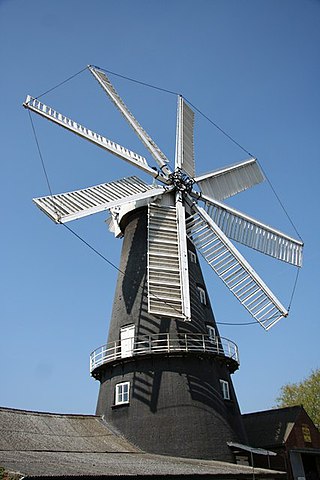
Heckington Windmill is the only eight-sailed tower windmill still standing in the United Kingdom with its sails intact.
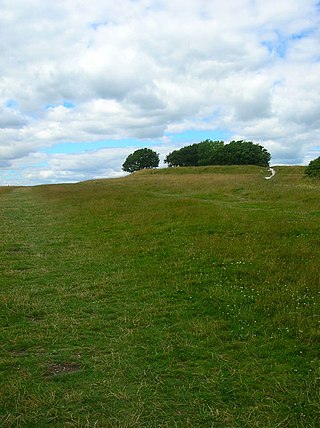
Highdown Hill is a hill in the South Downs, with a height of 81 metres (266 ft). The summit of the hill and its western slopes lie in the parish of Ferring in the Arun district, while its eastern slopes lie in the borough of Worthing. It is a popular spot for picnickers, dog-walkers and horse riders. It overlooks Littlehampton, Angmering, Ferring and Worthing with views as far east as the Seven Sisters and west to the Isle of Wight.
The Clayton Windmills, known locally as Jack and Jill, stand on the South Downs above the village of Clayton, West Sussex, England. They comprise a post mill and a tower mill, and the roundhouse of a former post mill. All three are Grade II* listed buildings.

Blackdown Mill or Cherry Clack Mill is a grade II listed smock mill at Punnetts Town, East Sussex, England, which has been restored.
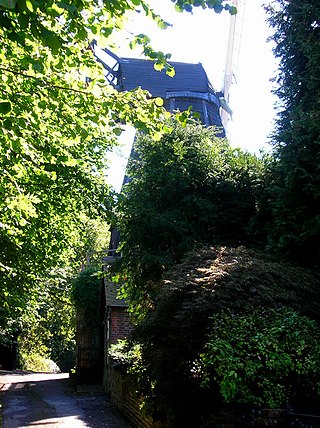
Meeten's Mill is a grade II listed smock mill at West Chiltington, Sussex, England, which has been converted to residential use.

South Marsh Mill is a grade II listed tower mill at Arundel, Sussex, England which has been converted to residential use.
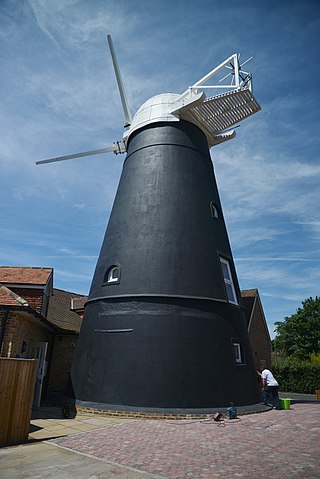
John Baker's Mill is a grade II listed tower mill at Barnham, Sussex, England, which was under restoration and is now to be converted to residential use.

Nutbourne Windmill is a tower mill at Nutbourne, Sussex, England which has been converted to retail use.

Nyetimber Mill is a grade II listed tower mill at Pagham, Sussex, England which has been converted to residential use.
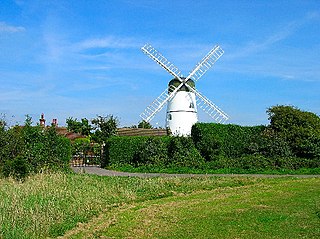
Waterhall Mill, also known as Westdene Windmill, is a grade II listed tower mill at Westdene, Sussex, England which has been converted to residential use.

Ovenden's Mill or Mockett's Mill is a grade II* listed tower mill at Polegate, East Sussex, England which has been restored but is now in a poor state and the tower is not open to the public. The impressive milling museum is open but only on certain Open Days. If you look at the "Polegate windmill" Facebook page you will find more details. We are arranging these days at the moment but the first one should be National Mills weekend with the mill open on the Sunday.

Stone Cross Windmill is a grade II* listed tower mill at Stone Cross, East Sussex, England which has been restored and is open to the public. The mill was also known as Blackness Mill and the White Mill.
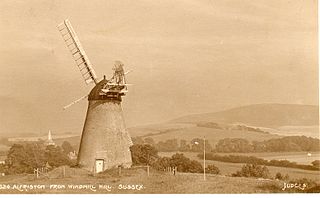
Alfriston Windmill is a tower mill at Alfriston, Sussex, England which has been converted to residential accommodation.

Pratt's Mill is a tower mill at Crowborough, Sussex, England which has been truncated and converted to residential accommodation.

Walter's Mill is a tower mill at Mark Cross, Sussex, England which has been converted to residential accommodation.
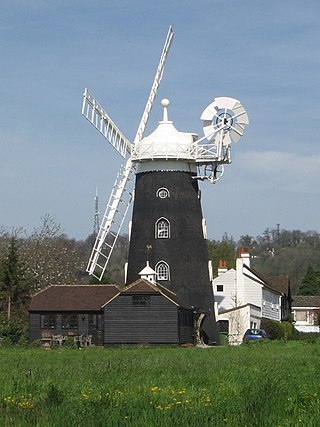
Wray Common Mill is a grade II* listed tower mill at Reigate, Surrey, England which has been converted to residential use.

Terling Windmill is a grade II listed Smock mill at Terling, Essex, England, which has been converted to residential use.

Gibraltar Mill is a grade II listed Tower mill at Great Bardfield, Essex, England which has been converted to residential use.

Breachwood Green Mill is a Grade II listed tower mill at King's Walden, Hertfordshire, England which has been converted to residential accommodation.
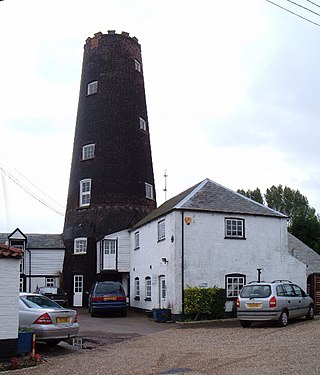
For the Gayton Windmill now in Merseyside see Gayton Windmill, Cheshire




















